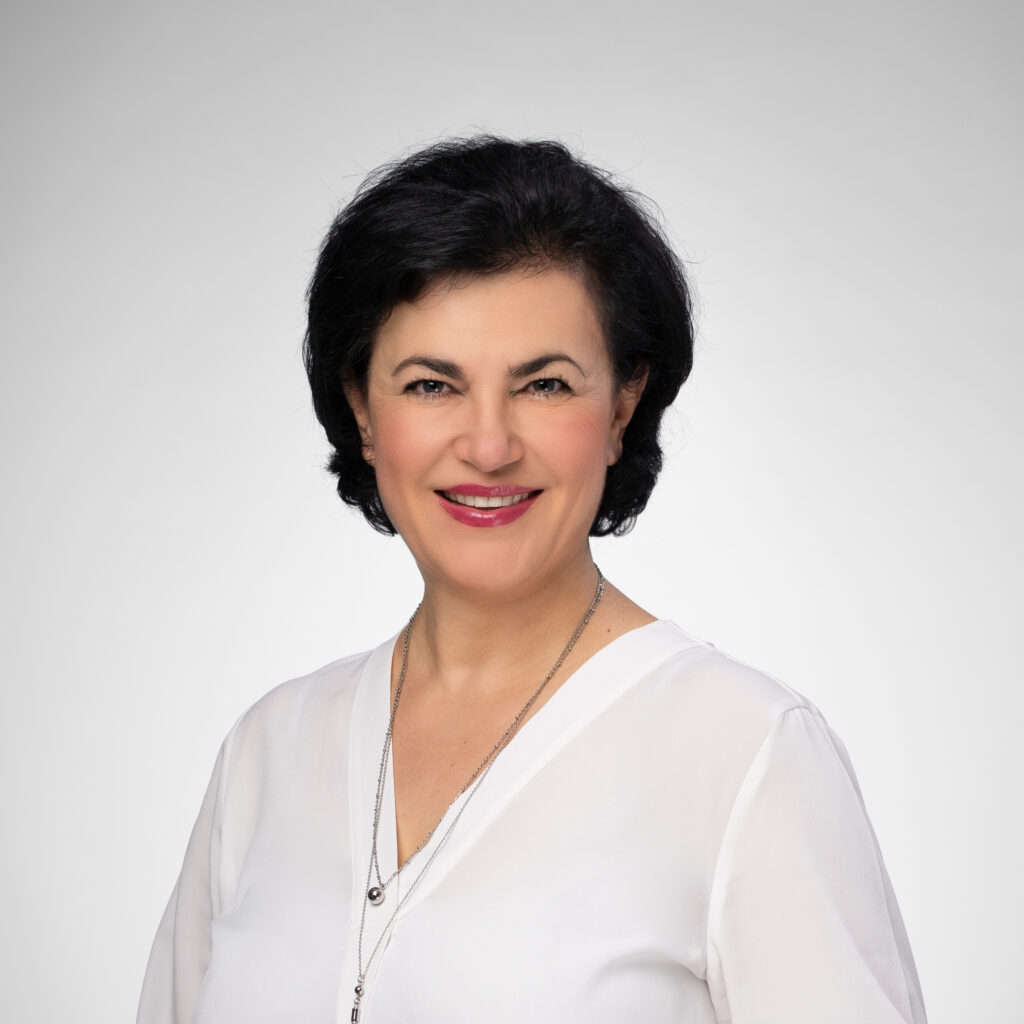In 2025, Beck Institute launched its all-new certification path – an important step towards making our certification process more accessible to professionals from a wider range of backgrounds at every level of their careers. One of the most exciting updates to this program has been our new Certificate in Theoretical Foundations of CBT, a crucial milestone demonstrating that trainees have a solid foundation in the core principles, models, and conceptual framework of CBT.
Recently, we spoke to Dr. Joanna Lipowska, the very first professional to achieve a Certificate in Theoretical Foundations of CBT, who shared her professional journey and her experience with this important new training option.

In your own words, could you tell us a little bit about your background as a psychologist and what drew you to CBT?
I studied Clinical Psychology and Health Psychology at Adam Mickiewicz University in Poznań. For quite a long time, I worked in roles that weren’t seen as the “typical” psychologist’s job. I started my professional career in university, teaching psychology-based courses, and later worked in recruitment, where I mainly used psychology to assess candidates. I also managed HR, drawing on work and organizational psychology.
My direct, individual work with clients began when I completed my PhD research on burnout and started offering one-on-one consultations. As I started working with more clients facing a variety of difficulties, I felt I needed solid therapeutic tools and skills.
What led you to pursue Beck Institute CBT Certification, and what has been your experience with the program?
I first checked all the available programs in Poland, but the waiting lists were very long, sometimes more than two years. I needed something that would help me deepen my skills right away. I started looking at international, online, or on-demand courses, and after reviewing different programs and modalities, I decided to focus on CBT, as it seemed the most practical and effective.
When I discussed my plans with a psychologist friend of mine in Ireland, she advised me: “If you’ve already chosen CBT, go to the best source – the Beck Institute.”
It took me a little time to decide, since the Beck Institute program was more advanced, longer, and had stricter requirements for certification, but the fact that it was available in an on-demand format (allowing me to start immediately and study at my own pace) was exactly what I needed. I was also lucky, because this option had only been introduced about six months earlier, during the pandemic. Looking back, I can honestly say it was the best professional development decision I’ve made in recent years.
Were there any parts of the program that stood out to you as especially helpful?
At first, I found the Essentials of CBT and CBT for Depression courses most helpful. But as I began to see more clients, I noticed a large proportion came to me with anxiety disorders as well. I think this reflects the growing awareness that CBT is especially effective for these issues, and I began relying heavily on what I had learned in CBT for Anxiety.
Initially, I didn’t feel confident working with personality disorders, and sometimes I referred those clients elsewhere, but over time, with supervision, I realized how often personality traits and disorders overlap with anxiety, depression, or perfectionism. This brought me back to the CBT for Personality Disorders course, which turned out to be extremely valuable.
So really, all four core courses were important at different stages. If I had to single one out, I’d say CBT for Anxiety, taught by Dr. Robert Hindman, stood out the most for me thanks to his teaching style and the client session video materials. I also found the roundtable discussions with Beck Institute specialists included in each course both fascinating and practical!
What advice would you share with other professionals interested in this program?

If someone is interested in developing CBT skills, I would absolutely recommend doing it at Beck Institute. It’s hard to imagine a better place to learn. It was co-founded by Aaron T. Beck, one of the creators of CBT, and is still led by co-founder and Dr. Beck’s daughter, Dr. Judith S. Beck.
My advice would be this: take the homework assignments and forum discussions seriously. Even though they weren’t graded, they really helped me absorb the material and feel comfortable using it. I’d also recommend taking the courses at your own pace but not leaving long breaks between because it can be harder to get back into study-mode after years away from formal education.
The Theoretical Foundations of CBT certificate was introduced this year, and if I had completed individual supervision earlier, I would have earned the Beck Institute CBT Certified Clinician (BICBT-CC) without needing to take the exam. At first, I was frustrated with myself for delaying. But now, having passed, I’m glad I did it. Preparing for the exam led me to thoroughly review the textbooks again, which refreshed and consolidated my knowledge. I know that will keep paying off in my work with clients.
What does it mean to you to achieve the Certificate in Theoretical Foundations of CBT?
It means I no longer worry about being compared to therapists who trained in Polish psychotherapy schools, because I can be proud of having earned my certificate at the very source – the place where CBT was created and developed.
On a personal level, it also reassures me that I’m still capable of learning, growing, and retaining knowledge. Of course, passing a professional, time-limited exam in English shows me that my language skills are solid too!
What are your next steps now that you’ve achieved the Certificate in Theoretical Foundations of CBT?
Shortly after earning the Certificate in Theoretical Foundations of CBT, I enrolled in the CBT in Practice: Essentials II on-demand course, which I’m currently completing. My plan is to finish it and then move directly into individual supervision, so I can achieve the Beck Institute CBT Certified Clinician (BICBT-CC) credential.
I want to continue working with individual clients, because even though I’ve had success and recognition in my earlier professional roles, the fulfillment I get from helping people feel better, overcome psychological difficulties, and live the lives they want, is truly unique and rewarding.
I’m also considering pursuing the Beck Institute CBT Certified Master Clinician level, and maybe, once I have a bit more time, I’ll return to writing articles on psychology for my blog, which I had to put aside while focusing on my clinical work and CBT training.